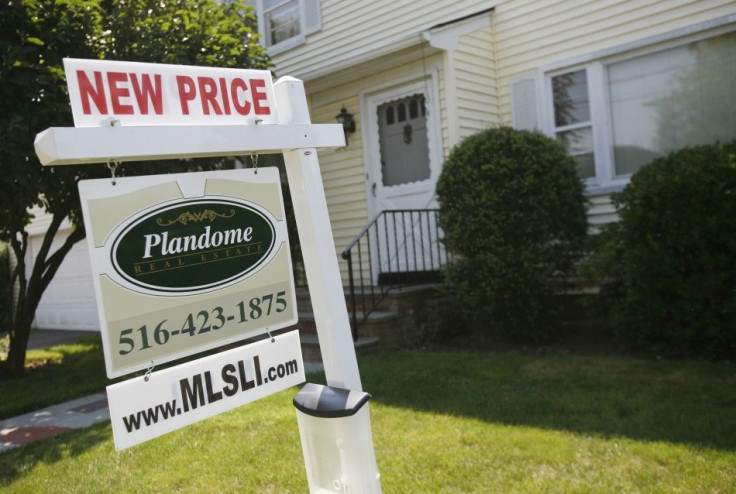U.S. Home Mortgage Rates Fall Again - Good Time to Lock-in a Rate?
Analysis

A plunging stock market, concerns about Europe sovereign debt, and a slowing U.S. economy form data points that one would hardly call a comforting week for Americans, but there has been one overlooked "ray of light" -- home mortgage interest rates continue to fall: the average fixed rate for a 30-year mortgage for borrowers with good credit has declined to 4.19 percent from 4.39 percent a week ago, according to data compiled by bankrate.com. A year ago, the rate averaged about 4.45 percent.
Further, the average fixed rate for a 15-year mortgage has dropped to 3.43 percent, from 3.51 percent last week.
Low Mortgage Rates: Will They Lure Home Buyers?
Therefore, from a strictly home mortgage interest rate standpoint, all other factors being equal, and assuming you have good credit, now is a good time to consider locking in a 30-year or 15-year fixed rate for a mortgage.
Interest rates may continue to drift lower, but a 30-year fixed rate at/near 4.20 percent is comparatively low for the United States in the modern era (since 1960).
What's pushing home mortgage rates lower? Home mortgage interest rates are primarily driven by market forces and right now interest rates are falling.
Despite the U.S. Government's large budget deficit, the 10-year U.S. Treasury note is down to 2.23 percent and that's pushing companion interest rates, or other long-term yields, lower, as well.
Two Factors Pushing Rates Lower
What's pushing the 10-year U.S. Treasury note's interest rate and other rates lower? Two factors.
First, those aforementioned European government debt concerns are sending institutional investors out of bonds in debt-laden European countries and in to safe-havens, and U.S. Government bonds represent one.
Obviously, the aforementioned can appear to be a contraction -- investors rushing to buy U.S. Government bonds at the same time some in political circles are expressing concern about the U.S.'s large budget deficit and national debt, which a special Congressional super committee will try to cut by at least $1.5 trillion more by Thanksgiving.
However, at least for now, institutional investors remain confident in the U.S. Government's ability to pay its debt -- confidence in the "faith and credit" of the federal government and view U.S. Treasuries as a safe-haven -- practically as good as having a cash position. That buying of bonds has decreased the U.S.'s debt servicing costs and has also lowered home mortgage rates: when low-risk Treasury interest rates drop, slightly higher-risk mortgage rates tend to drop as well.
Second, the tepid U.S. economy and concern about a slowdown in the global economy has reduced the demand for capital, and that's helped lower home mortgage rates, as well. Essentially, investors don't see a lot of exciting places to deploy capital -- business investments where they're likely to net a high rate of return, so they're rotating money in to U.S. Treasuries and other, safe instruments, and that's helped push down mortgage rates, as well.
Housing Analysis: Of course there are many factor in the home purchase decision, including where prices are headed in the next year. Many cities in the U.S. are experiencing soft home sales, and prices could remain sluggish in this areas.
That said, if you've spotted the dream house you must have, or are otherwise committed to buying, home mortgage interest rates are low; advantageous is another word for it.
© Copyright IBTimes 2024. All rights reserved.











